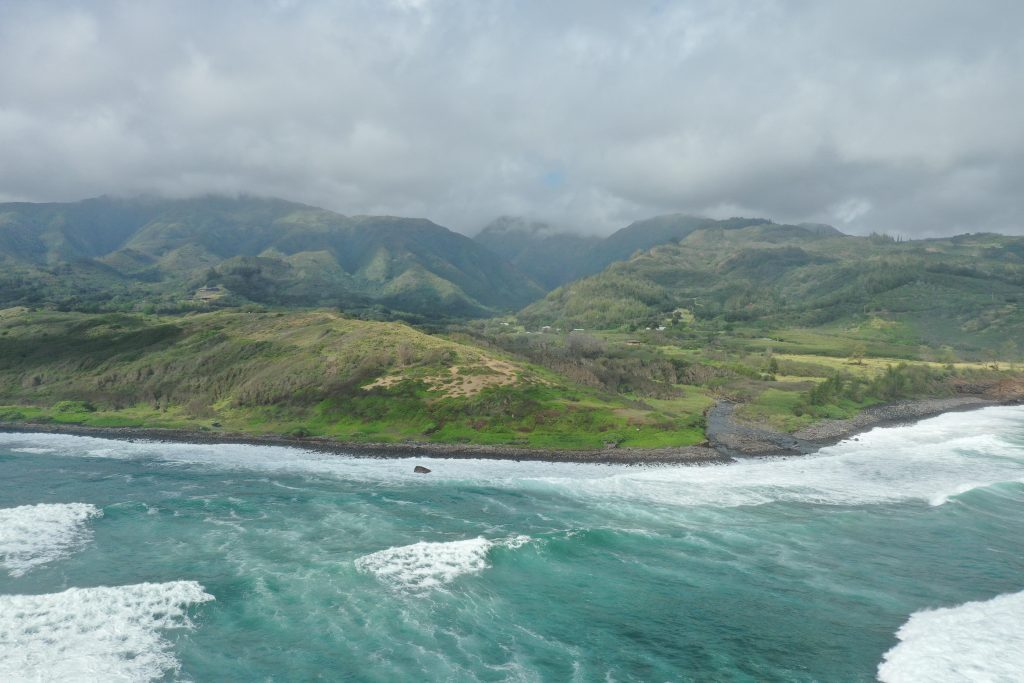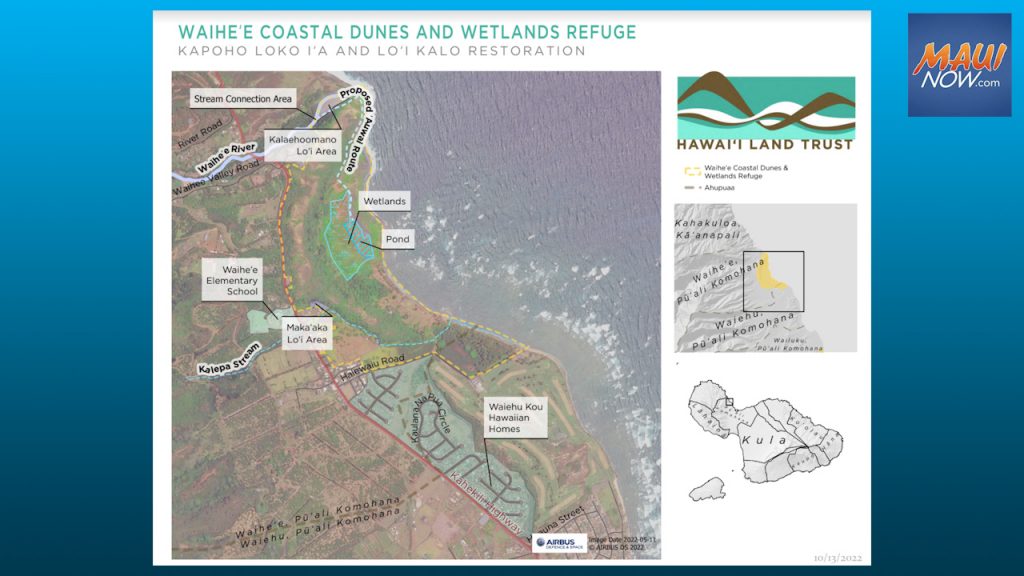Hawaiʻi Land Trust awarded $803,700 grant for Waiheʻe Coastal Dunes & Wetlands Refuge

The Hawai‘i Land Trust has been awarded an $803,700 grant from NOAA for the federal Climate-Ready Coasts initiative. The funds will be used at the 277-acre Waiheʻe Coastal Dunes and Wetlands Refuge on Maui. It will also fund restoration of taro fields and the fishpond at Kapoho, which is located within the refuge.
Leaders with the nonprofit land trust note that this is the largest operational grant in the organizationʻs history.
Among the most significant cultural sites in the state, Waiheʻe Refuge was once populated with two thriving ancient Hawaiian villages, an extensive inland fishpond, and several heiau. The Refuge was permanently protected in 2003.

HILT will work in partnership community to restore the flow of water to the taro fields and fishpond by building a ridge-to-reef model for collaborative land and ocean stewardship. As part of this process, HILT will host outreach meetings, workshops, volunteer workdays, and educational activities.
“We are grateful to NOAA for this opportunity to expand our engagement with the Waiheʻe and Waiehu communities in collaborative ecosystem stewardship and Native Hawaiian cultural practice,” said ‘Olu Campbell, President and CEO of HILT. “We intend these efforts to connect people to ‘āina, improve ecosystem function, strengthen coastal resilience, and work toward the restoration of a sustainable, traditional food source.”
For more than 20 years, HILT has actively restored native habitat, provided cultural and ʻāina-based educational programming, and recreational opportunities for the community at Waiheʻe.
The Climate-Ready Coasts initiative is focused on investing in high-impact projects that: create climate solutions by storing carbon; build resilience to coastal hazards such as extreme weather events, pollution and marine debris; restore coastal habitats that help wildlife and humans thrive; build the capacity of underserved communities and support community-driven restoration; and provide employment opportunities.





_1768613517521.webp)

